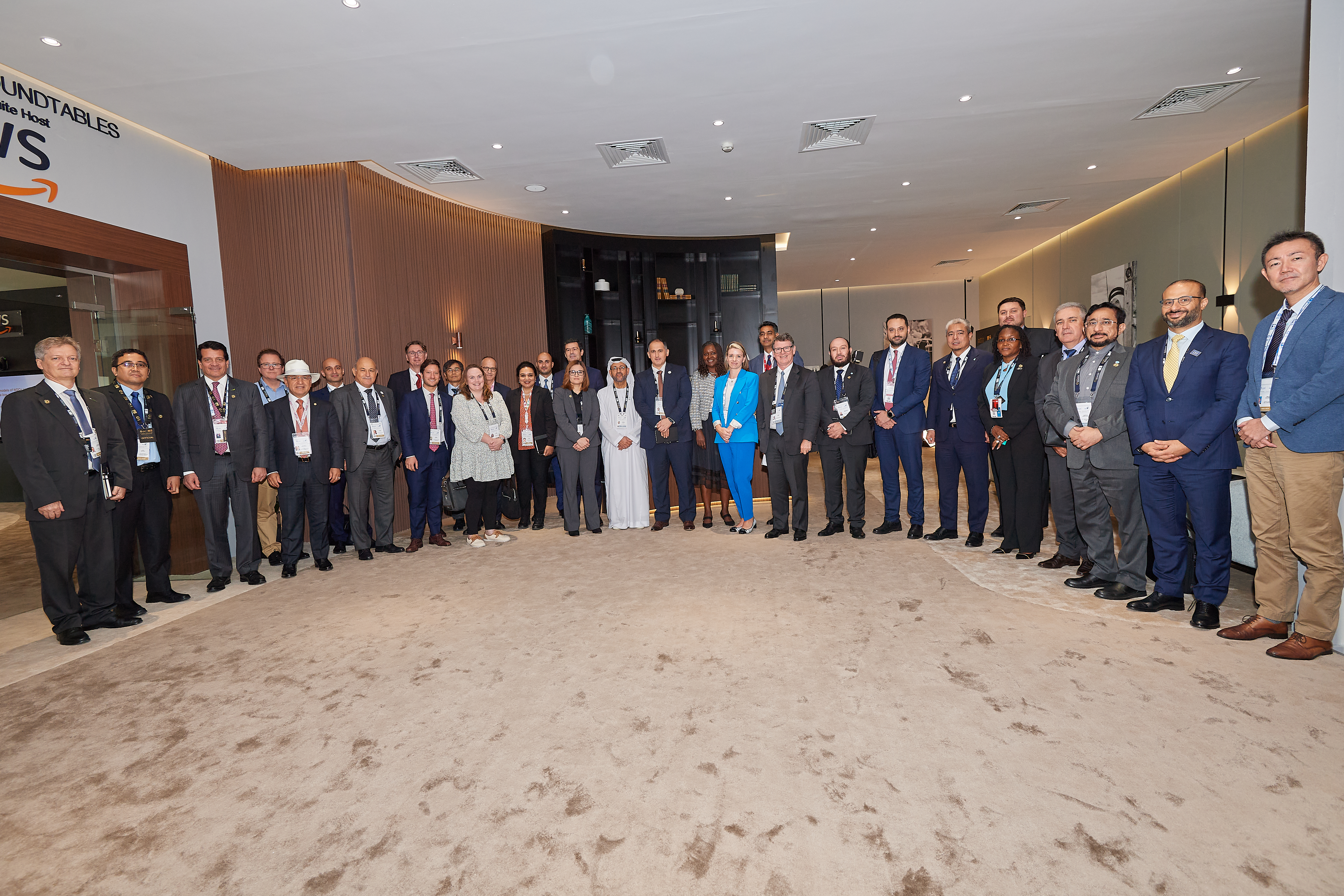ADIPEC Leadership Roundtable- New Business Models of NOCs and IOCs: Driving a Low Carbon World
A&M attended ADIPEC 2022, the world's most influential energy forum, where we moderated a leadership roundtable discussion with energy industry experts. The discussion focused on the role of oil companies in the energy transition, and the challenges companies face in their transition to low and zero-carbon fuels. Below we have shared our key takeaways from the event.
A&M Joins ADIPEC’s Roundtable to Discuss Role of Oil Companies in the Energy Transition
Business models and priorities of oil companies across the globe have evolved significantly in recent years to accommodate social, regulatory and operating changes brought by the energy transition to low and zero-carbon fuels.
Florent Maisonneuve, a Managing Director with A&M’s Corporate Transformation Services in Paris, recently joined a panel of industry-leading experts at Abu Dhabi’s ADIPEC 2022, the world’s most influential energy forum, to discuss some of the challenges businesses face in this journey.

Key points covered include the impact of geopolitical and macroeconomic changes on the outlook for oil and gas producers, the different approaches to sustainable investments and the need for increased collaboration between stakeholders in the value chain to maintain momentum and achieve net-zero goals.
In the article below, we summarize some of the key takeaways from the discussion:
Investment in clean technologies is accelerating within the industry
In recent months, global energy markets have faced supply and demand imbalances, price volatility and supply chain disruptions which have challenged the belief that the world can complete the transition away from fossil fuels over the next twenty years. This is highlighted by the lack of consensus on how much global oil demand will have to shrink to put the world on a pathway to net-zero emissions by 2050.
Despite the uncertainty, regulatory, employee, societal and market pressures have driven growth in clean technology investments. Many of the more established players are indeed adapting their business models in response to the green agenda by investing in renewables and biofuels. Some are extending these efforts into alternative technologies such as hydrogen and carbon capture and storage, in light of compelling economic and tax incentives being introduced by governments.
However, clean technology investments only constitute 5% of the total industry capex spend in 2022[1]. Panelists agreed that any acceleration from that level will require the availability of higher returns and the sharing of technology and capabilities within the industry and countries.
It was also noted that some players, and particularly emerging national oil companies, are trying to balance the global environmental agenda with national development needs which is, in some cases, exacerbating energy nationalism and the focus on supply security.
Development of a new energy ecosystem will require value chain collaboration
Roundtable participants agreed that a rethink of the entire energy ecosystem is required to achieve the sustainable transition to clean technologies, and that success can only be achieved through enhanced partnership within the direct value chain. To this end, regulators, investors and consumers need to set realistic, achievable expectations that reflect the varying needs of energy producers and consumers around the world.
Another key success driver will be technology and most importantly know-how transfer from international to national oil companies to enable them to catch-up with and accelerate the energy transition.
Further down the value chain, partnerships between energy producers, service providers and suppliers have delivered several successes in particular as many of these players, having already pivoted their businesses towards supporting the energy transition, have started building the critical infrastructure needed for the development and establishment of new green technologies.
From a people and skills perspective, the new business models as well as the improved awareness of the contribution of the energy sector to the day-to-day life have made the sector appealing again, leading to improved employee engagement and enhanced attractiveness to young and qualified talent.
Finally, with many investors still wondering how a low carbon business model will generate acceptable returns, regulators will still have a key role to play in maintaining their support for the energy transition through incentives, supporting legislations and continuous encouragement of ecosystem-wide collaboration.
Download the Leadership Roundtable Summary >>
How can A&M help?
Alvarez & Marsal has the skills and experience to support business leaders in the energy sector managing through the most difficult financial and operating environments.
A&M brings not only financial and operating expertise, but also the ability to assist in program and company negotiations with governments, industry partner companies and suppliers to create win-win outcomes, minimize business disruption and deliver on the mission.
For more information, get in touch with our team.
[1] As per the IEA World Energy Investment 2022 report, for a selected peer group that includes the majors, ADNOC, CNPC, CNOOC, Equinor, Gazprom, Kuwait Petroleum Corporation, Lukoil, Petrobras, Repsol, Rosneft, Saudi Aramco, Sinopec and Sonatrach. The estimated clean capex in 2022 is based on investment spending announced to 31 March 2022 and assumes that this pace of investment is maintained throughout the year. IEA calculations based on BNEF (2022); Clean Energy Pipeline (2022); company reports and websites.






